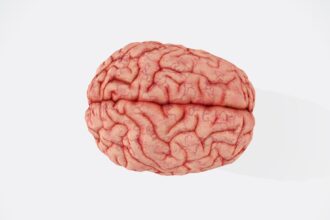In the realm of mental health, understanding the nuances of various disorders is crucial for both individuals and professionals. One such condition that often eludes clear comprehension is Depersonalization Derealization Disorder (DPDR). This disorder can leave you feeling detached from your own thoughts, emotions, or sense of self, as well as from the world around you.
The criteria for diagnosing this disorder are essential for recognizing its presence and understanding its implications. By delving into the criteria, you can gain insight into how DPDR manifests and affects those who experience it. The significance of understanding the criteria for depersonalization and derealization cannot be overstated.
It serves as a foundation for identifying the disorder and differentiating it from other mental health issues. As you explore this topic, you will uncover the complexities of DPDR, including its symptoms, diagnostic criteria, and treatment options. This knowledge not only aids in personal understanding but also fosters empathy towards those who struggle with this often-misunderstood condition.
Key Takeaways
- Depersonalization Derealization Disorder is characterized by persistent or recurrent experiences of depersonalization, derealization, or both.
- Depersonalization refers to feeling detached from one’s thoughts, feelings, or body, while derealization involves experiencing the external world as unreal or dreamlike.
- The diagnostic criteria for Depersonalization Derealization Disorder include persistent or recurrent experiences of depersonalization, derealization, or both, causing significant distress or impairment in daily functioning.
- Symptoms of Depersonalization Derealization Disorder may include feeling like an outside observer of one’s thoughts or body, a sense of unreality or detachment from the environment, and emotional numbness.
- It is important to differentiate Depersonalization Derealization Disorder from other disorders such as anxiety, depression, or schizophrenia, as the treatment approaches may vary.
Definition and Explanation of Depersonalization Derealization
Depersonalization refers to a feeling of detachment from oneself, as if you are an observer of your own life rather than an active participant. You might feel as though your thoughts and emotions are not your own or that you are watching yourself from a distance. On the other hand, derealization involves a sense of disconnection from your surroundings.
The world may seem unreal, dreamlike, or distorted, making it difficult for you to engage fully with your environment.
The experience of DPDR can be unsettling and disorienting.
You may find yourself questioning your reality or feeling as though you are living in a fog. These sensations can arise suddenly and may be triggered by stress, trauma, or anxiety. While many people may experience fleeting moments of depersonalization or derealization, those with DPDR endure these feelings persistently, leading to significant distress and impairment in daily functioning.
Diagnostic Criteria for Depersonalization Derealization Disorder

To be diagnosed with Depersonalization Derealization Disorder, specific criteria must be met according to the Diagnostic and Statistical Manual of Mental Disorders (DSM-5). First and foremost, you must experience recurrent episodes of depersonalization, derealization, or both. These episodes should be persistent and not merely transient experiences that occur in response to stress or fatigue.
Additionally, the symptoms must cause significant distress or impairment in social, occupational, or other important areas of functioning. It is also crucial that these experiences are not attributable to the physiological effects of a substance or another medical condition. By adhering to these diagnostic criteria, mental health professionals can accurately identify DPDR and differentiate it from other disorders that may present similar symptoms.
Understanding the Symptoms of Depersonalization Derealization
| Symptom | Description |
|---|---|
| Feeling detached from oneself | A sense of being outside of one’s body or feeling like a robot |
| Feeling detached from the surroundings | Perceiving the environment as unreal or distorted |
| Emotional numbness | Lack of emotional response or feeling disconnected from emotions |
| Memory problems | Difficulty recalling specific details or events |
| Difficulty concentrating | Struggling to focus or pay attention to tasks |
The symptoms of Depersonalization Derealization Disorder can vary widely among individuals. You may experience feelings of detachment from your body or thoughts, leading to a sense of unreality about yourself. This can manifest as a lack of emotional response or a feeling that your body does not belong to you.
You might also notice changes in your perception of time or space, where moments feel elongated or compressed. Derealization symptoms can include a distorted perception of your surroundings. Objects may appear altered in size or shape, and familiar places may seem foreign or strange.
You might feel as though you are living in a movie or dream, which can be both frightening and confusing. Recognizing these symptoms is vital for understanding how DPDR affects your life and well-being.
Differentiating Depersonalization Derealization from Other Disorders
One of the challenges in diagnosing Depersonalization Derealization Disorder lies in distinguishing it from other mental health conditions. For instance, anxiety disorders often feature symptoms that overlap with DPDR, such as feelings of unreality during panic attacks. However, in DPDR, these feelings are more chronic and pervasive rather than episodic.
Similarly, post-traumatic stress disorder (PTSD) can involve dissociative symptoms that resemble those found in DPDR. Yet, PTSD is typically linked to specific traumatic events, while DPDR can occur without any identifiable trigger. Understanding these distinctions is essential for accurate diagnosis and effective treatment planning.
The Impact of Depersonalization Derealization on Daily Life

Living with Depersonalization Derealization Disorder can significantly impact your daily life and overall quality of existence. You may find it challenging to engage in social situations or maintain relationships due to feelings of detachment and unreality. This disconnection can lead to isolation and loneliness, further exacerbating feelings of anxiety and depression.
Moreover, the cognitive effects of DPDR can hinder your ability to concentrate or perform tasks effectively. You might struggle with decision-making or feel overwhelmed by everyday responsibilities. The persistent nature of these symptoms can create a cycle of distress that affects not only your mental health but also your physical well-being.
Risk Factors and Causes of Depersonalization Derealization
Understanding the risk factors and potential causes of Depersonalization Derealization Disorder is crucial for prevention and early intervention. Research suggests that individuals who have experienced trauma, particularly during childhood, may be more susceptible to developing DPDR. This could include physical or emotional abuse, neglect, or exposure to violence.
Additionally, high levels of stress and anxiety can trigger episodes of depersonalization and derealization. If you have a history of anxiety disorders or mood disorders, you may be at an increased risk for developing DPDR. Genetic predisposition may also play a role; if you have family members with dissociative disorders, you might be more likely to experience similar symptoms.
Treatment Options for Depersonalization Derealization Disorder
When it comes to treating Depersonalization Derealization Disorder, a multifaceted approach is often most effective. Psychotherapy is a cornerstone of treatment, with cognitive-behavioral therapy (CBT) being particularly beneficial. Through CBT, you can learn to identify and challenge negative thought patterns associated with your experiences of depersonalization and derealization.
In some cases, medication may be prescribed to help manage symptoms associated with anxiety or depression that often accompany DPDR. Antidepressants or anti-anxiety medications can provide relief from distressing symptoms and improve overall functioning. However, medication should always be considered as part of a comprehensive treatment plan that includes therapy.
Coping Strategies for Managing Depersonalization Derealization
In addition to professional treatment options, there are several coping strategies you can employ to manage the symptoms of Depersonalization Derealization Disorder effectively. Mindfulness practices can be particularly helpful in grounding yourself in the present moment. Techniques such as deep breathing exercises or meditation can help reduce feelings of detachment and promote a sense of connection to your body and surroundings.
Engaging in physical activities can also serve as a powerful tool for managing symptoms. Exercise releases endorphins that can improve mood and reduce anxiety levels. Additionally, maintaining a healthy lifestyle through proper nutrition and sleep hygiene can contribute positively to your overall mental health.
Seeking Professional Help for Depersonalization Derealization
If you find yourself struggling with symptoms of depersonalization or derealization, seeking professional help is essential. A mental health professional can provide an accurate diagnosis and develop a tailored treatment plan that addresses your unique needs. Therapy offers a safe space for you to explore your experiences and develop coping strategies while working towards recovery.
It’s important to remember that seeking help is a sign of strength rather than weakness. Many individuals experience similar feelings at some point in their lives; however, when these feelings become persistent and disruptive, professional guidance becomes crucial for regaining control over your mental health.
Conclusion and Importance of Understanding Depersonalization Derealization Criteria
In conclusion, understanding the criteria for Depersonalization Derealization Disorder is vital for recognizing its impact on individuals’ lives. By familiarizing yourself with the definitions, diagnostic criteria, symptoms, and treatment options associated with DPDR, you empower yourself to seek help when needed and foster compassion towards others who may be experiencing similar challenges. The journey through depersonalization and derealization can be daunting; however, with the right knowledge and support systems in place, recovery is possible.
By raising awareness about this often-misunderstood disorder, we contribute to a more informed society where individuals feel validated in their experiences and encouraged to seek the help they deserve.
Depersonalization-derealization disorder is a dissociative condition characterized by persistent or recurrent feelings of detachment from one’s self (depersonalization) or surroundings (derealization). Individuals experiencing this disorder often describe feeling as though they are observing themselves from outside their body or that the world around them is unreal. For a deeper understanding of the criteria and symptoms associated with depersonalization-derealization disorder, you can explore a related article on the topic by visiting com/sample-page/’>Unplugged Psych.
This resource provides valuable insights into the diagnostic criteria and therapeutic approaches for managing this complex condition.
LEARN MORE About Unmasking the Mysteries Behind Depersonalization and Derealization
FAQs
What is depersonalization-derealization disorder?
Depersonalization-derealization disorder is a mental health condition characterized by a persistent or recurrent feeling of being detached from one’s body (depersonalization) and/or feeling that the world around them is unreal or distorted (derealization).
What are the criteria for diagnosing depersonalization-derealization disorder?
According to the Diagnostic and Statistical Manual of Mental Disorders (DSM-5), the criteria for diagnosing depersonalization-derealization disorder include persistent or recurrent experiences of depersonalization, derealization, or both. These experiences cause significant distress or impairment in social, occupational, or other important areas of functioning.
What are some common symptoms of depersonalization-derealization disorder?
Common symptoms of depersonalization-derealization disorder include feeling detached from one’s body or thoughts, feeling like an outside observer of one’s own thoughts or actions, and experiencing a sense of unreality or distortion of the environment.
What causes depersonalization-derealization disorder?
The exact cause of depersonalization-derealization disorder is not fully understood, but it is believed to involve a combination of biological, psychological, and environmental factors. Trauma, stress, anxiety, and certain personality traits may contribute to the development of the disorder.
How is depersonalization-derealization disorder treated?
Treatment for depersonalization-derealization disorder may include psychotherapy, medication, and self-help strategies. Cognitive-behavioral therapy (CBT) and mindfulness-based approaches have shown to be effective in helping individuals manage their symptoms. Medications such as antidepressants or anti-anxiety drugs may also be prescribed in some cases.




